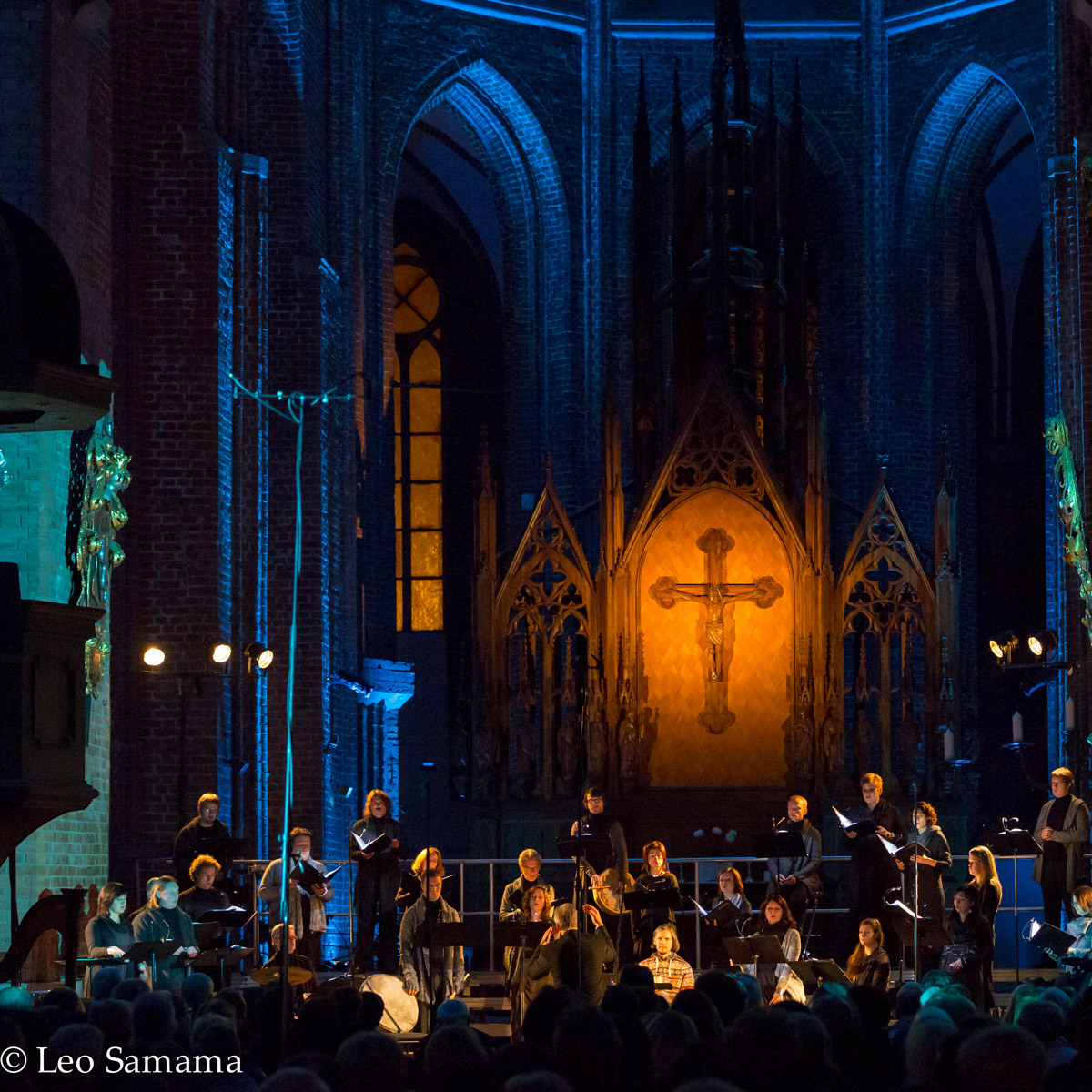- Main page
- Latvijas Radio koris. Laiks pirms Lielās dienas

Latvijas Radio koris. Laiks pirms Lielās dienas
Musicians:
Latvian Radio Choir
Lāsma Meldere Šestakova, baroque violin
Zane Grosa, baroque violin
Ainārs Paukšēns, viola da gamba
Ilze Reine, positive organ
Jurģis Klotiņš, double bass
Mārtiņš Garkevičs, theorbo
Pēteris Vaickovskis, conductor
Programme:
Dietrich Buxtehude (1637-1707), Membra Jesu Nostri, BuxWV 75
Dietrich Buxtehude was one of the most distinguished baroque composers in Northern Germany. He is known as the father of German music by historians. Buxtehude's talents as an organist were praised throughout Europe. It is said that Johann Sebastian Bach once walked 400 km on foot to study the mastery of his elder colleague and to learn from him. Buxtehude was the most outstanding German organist of all. He composed numerous organ opuses, for which reason he has always been seen as a master of instrumental music, but early in the 20th century, there was the discovery of some 100 vocal and instrumental opuses from the great master, surprising audiences with enormously rich and colourful vocal techniques and diversity of genres. The seven-cantata cycle Membra Jesu nostri is Buxtehude's most important opus for choir, soloist and a small ensemble of instruments, with each movement focusing on a part of the body of Jesus Christ (his feet, knees, arms, side, chest, heart and face) upon the cross. Buxtehude was a Protestant, but the mystical and secretive lyrics of the cantata come from the Rhythmica Oratio hymnal, which, according to legend, was produced by a Medieval monk in the Cistercian Order. The beautiful music interweaves with expressive vocals, and they are powerfully strengthened by the expressive rhetoric of the Baroque age.
